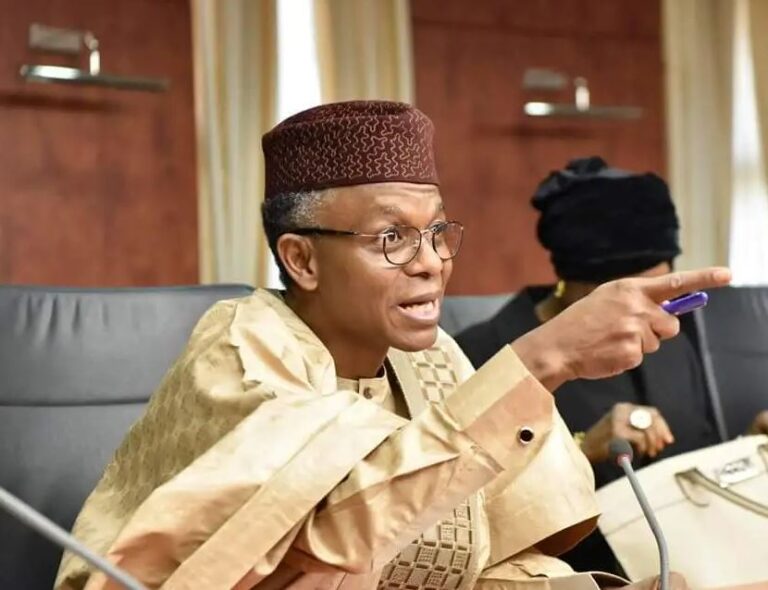Nasir El-Rufai, the immediate past governor of Kaduna State, on Tuesday, denied claims that he embezzled public funds while in office.
El-Rufai vowed to swear with Qur’an to prove his innocence. According to him, he joined politics solely to serve the people and not to seek money or steal public funds.
El-Rufai made this statement during a Hausa program aired on a local radio station in Kaduna on Tuesday.
He said “I was quiet to see how things would turn out, but for me, I always ask God to help me in whatever I do in life because, as a human being, I always try not to do anything wrong or betray the people’s trust.
READ ALSO: El-Rufai Dismisses Kaduna Assembly’s N423 Billion Embezzlement Allegations
I always say that whenever the former governors of Kaduna State and other leaders decide to take an oath swearing with the Quran that they never took people’s money, I’m also ready to swear.
This is because I know that I didn’t go into public service to steal or take people’s money. I joined politics only to serve the people of Kaduna State; I didn’t come to look for money, because I give glory to God that I’m content with what I had even before becoming governor.
Yet, we were accused of misappropriation of funds during our tenure without being given a specific area where the money went missing or who took it.
READ ALSO: Governor Sani Reinstates Monarch Sacked By El-Rufai
Yet they are going after my allies by inviting them to the ICPC and EFCC with the intention of tarnishing their names.
As for me, I had already prayed two Raka’at on Friday night, leaving everything to God, seeking His judgment. This is why I’m not saying much about the issue.”
He stressed that he was content with what he had even before becoming governor.
Grassroots Parrot had reported how the Kaduna State House of Assembly indicted El-Rufai’s administration for allegedly misappropriating over N423 billion during his eight-year tenure.
However, the ex-governor and his allies have denied the allegations. They claimed they are being witch-hunted by the Assembly and the state government.

